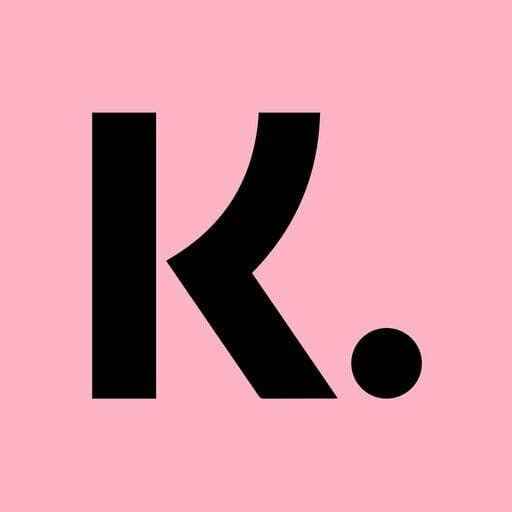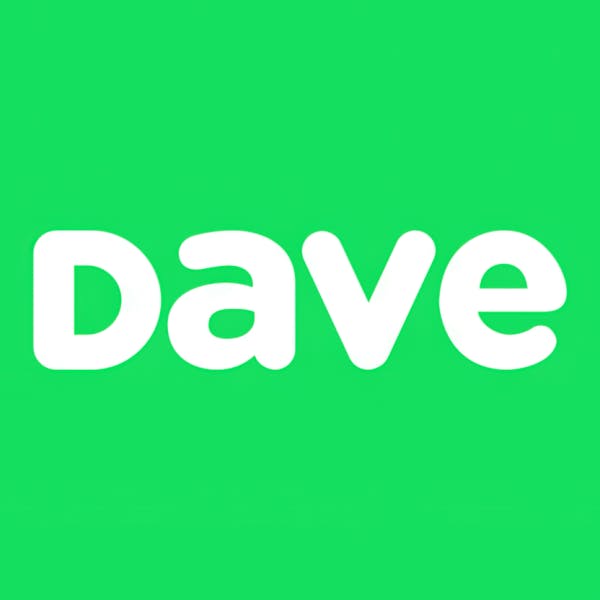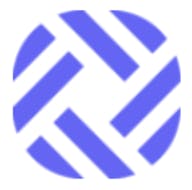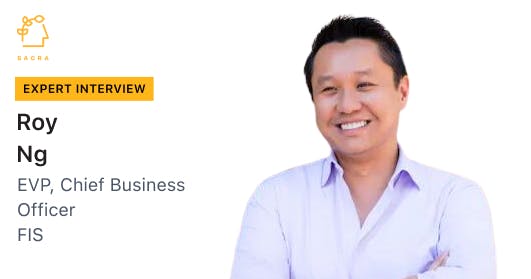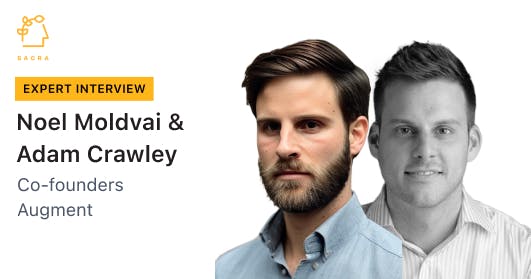
Background
Noel Moldvai and Adam Crawley are the co-founders of Augment. We talked to Noel and Adam about lessons learned from the SharesPost era of secondary exchanges, the prospects of a centralized secondary market for private company stock, and building software not just for investors and shareholders but for brokers to expand the size of the ecosystem.
Questions
- What is Augment? What inspired you to build it?
- You’ve mentioned the Facebook IPO timing that gave rise to SharesPost. We’re in a similar sort of recession now. What makes now the right time to launch a new secondary marketplace?
- How do you think about your wedge in terms of initial marketplace participants, initial volume and just getting the ball rolling?
- Can you explain the independent broker dealer dynamic?
- If you’re speaking with someone who doesn't understand the regulatory landscape that well, how would you explain why Augment became a licensed broker dealer? What does that enable Augment to do?
- One of the historical problems with execution in private deals is that of ROFRs and the company's ability to block transactions. Given that, what opportunities do you see to innovate around execution with software?
- In that context, do you anticipate bringing CFOs onto the platform and building tools for them to make it easier to respond and communicate?
- Augment has some elements of vertical SaaS, vertical software for brokers, and vertical software for in-house and CFOs, and uses that to kickstart volume and liquidity in the marketplace. Is that a fair summary of the approach? Where are you focused right now?
- Through your time at SharesPost, what did you learn from the previous generation of companies on what they got right? What were the limitations of their approach? Tell us how this new software first type approach can break through some of that.
- You called out trust, that's the one thing we haven't talked about. For your Airbnbs, for example, trust is sort of core to what makes it a marketplace. Could you talk more about trust and how you think about building trust and Augment from a software perspective?
- In terms of the competitive landscape, there's your Sandhill Markets or Hiive which are focused on smaller checks. There’s companies like Secfi, EquityBee and Vested who are focused on sourcing blocks from employees and then either brokering them or buying them themselves, or structuring financial products out of them. There are CartaX and Nasdaq Private Market which are focused on working with companies to execute liquidity events. The last bucket could be Caplight, which does derivatives, and Zanbato, which has a marketplace model focused on institutional investors. How do you see this ecosystem and where would you slot yourself?
- Can a Secfi for instance, actually list their volume on Augment, and interact with Augment purely programmatically and not as a destination?
- Caplight and Zanbato have launched data products and some of it is countercyclical stuff while some, is a foundational part. You want to have the data layer before you build the marketplace on top, because you need the data to have trust from the participants. Some companies come at this purely from the data angle first. Can you talk about what's happening in terms of the private markets data, companies and market? Is that interesting to Augment and do you want to monetize that?
- As you start to aggregate volume and liquidity, how do you see expansion opportunities that weren't available to the previous companies? Is there a ceiling on how big secondary markets can be so there might be some adjacent expansion necessary? Or is this more just about aggregating volume and growing that to the largest marketplace? What’s your take on adjacent opportunities like PE, real estate, and other private opportunities?
- We talked about different participants, founders, employees, VCs, secondary funds, crossover funds, institutional investors. Is there sort of a trajectory? How do you see that sort of playing out for Augment?
- Do you see yourself getting into company-sponsored liquidity events where companies can come and directly facilitate, for example, tender offers or recurring liquidity through Augment?
- If everything goes right for Augment in five years, what will it become? How has the world changed as a result?
Interview
What is Augment? What inspired you to build it?
Noel:
I studied engineering at Berkeley, worked at Google for a couple of years, and then joined a data security startup called Rubrik for five years.
When I left in 2020, I wanted to sell some of my shares and get some liquidity for a few big life purchases I wanted to make. I’d heard rumblings about being able to sell shares from co-workers and was hit up by people on LinkedIn looking to buy, but never really delved too deep into it.
The first place everyone used to go to for exploring liquidity was SharesPost. With SharesPost, what you end up with is this fragmentation of communication, not knowing what the price or the process is, and a real problem of transparency.
I was talking to 25-30 people, both buyers and brokers. Five months later, I ended up finding a deal.
The deal execution process was super confusing. I had to hire a lawyer to read through the documents, and I was dealing with a broker who I now know is super legit, but I didn't know who he was, the regulatory landscape, and how this worked at the time.
That’s when I started thinking about a way to improve that experience—figuring out how to get more real-time pricing, centralizing communication and negotiation with counterparties, and then executing the deal.
I was honestly going to build this as a side project and thought it would be fun. I didn't know about any of the pretty massive regulatory barriers. Floated it by a few VCs and many players in the space—they thought it was an interesting concept—and eventually linked up with Adam in 2020. We started chatting, and his experience at SharesPost really matched and augmented my experience to build something like this, so we went ahead and got to building.
Adam:
I was at SharesPost for about six years, and I joined when the market was pretty dead, because Facebook had just had a poor IPO.
It took some time for the market to come back, but it was clear that there was demand for technology companies, which were some of the most valuable assets in the world.
When it comes to staying private, I like to think about the incentives. The JOBS Act created more incentives for these private companies to stay private and raise more privately. At the same time, companies just don't want to go public, or they want to wait until they’re really ready. There are a lot of examples that show that you shouldn't go public too soon.
The idea of building a marketplace to bring these really interesting companies that are changing the world to the public was super interesting. There's obviously institutional and retail demand so bringing something online that can really capture the masses is a cool thing.
You’ve mentioned the Facebook IPO timing that gave rise to SharesPost. We’re in a similar sort of recession now. What makes now the right time to launch a new secondary marketplace?
Adam:
When I was at SharesPost, we were the central marketplace. We had an opportunity to scale that brand globally. But that was more of a traditional brokerage, and not technology scaling through software.
When I left—when it became clear to me we couldn't execute the bigger vision at SharesPost—I went overseas working with a Swiss family office and focused on building out my network in Asia. I was also doing martial arts and pursuing some other interests, just assuming that Forge or Carta or someone was going to figure out the market. But I was still frustrated over what could have been, and I held onto that for a long time.
When Noel hit me up and we started talking and getting back into the market, I realized that things hadn’t changed. There were a lot of different players popping up, but there were still these easy things that could be solved that could really change the experience of transacting in the market, and those things needed to be addressed to move the market forward.
Now is the time to actually build technology that solves some of the low hanging fruit, and coming at it from a first principles perspective, I think, can do that.
Noel:
Everyone’s had this idea like, "Oh! Let's create this transparent bulletin board for secondary trading instead of having these people contact you randomly."
I've talked to people outside the finance ecosystem, more in the tech world, about the idea who say they’ve explored it, but that they thought the market was too small or didn’t know how to get the marketplace bootstrapped.
So one thing is that the volumes have been growing really quickly over the past few years, and there’s a lot more awareness. Especially recently, even earlier stage venture capital is looking at this market to buy up shares at a discount in companies that are healthy, but maybe raised at a too-large valuation in 2021.
The other thing is, honestly, we're not really sure why someone hasn't started something like this right now. There's a book by Eliezer Yudkowsky, the AI guy, called Inadequate Equilibria, and he talks about this: everyone assumes that there's some reason why something hasn't been started, so they don't do it themselves.
Adam and I sat down over months and we're like, "Why has this not been done before in a super transparent tech-enabled way? How can we build something for this space that'll work?" We said, "I think we should just do it. I don't know why other people aren't doing it." Maybe one reason is that you have to have a team that balances the technology and financial or regulatory professional experience. We haven’t seen many tech plays emerge in this space.
I think Adam’s background and mine perfectly mesh there. I bring the technology and software angle while Adam brings the market expertise and dealing with the regulatory angle. That sets us up to be a software company rather than a brokerage or an old school marketplace, where we try to automate as much of the deal as possible.
How do you think about your wedge in terms of initial marketplace participants, initial volume and just getting the ball rolling?
Adam:
Some of our competitors don't work with the broader market. They try to scale through their own brokers and do it themselves. They play zero-sum games.
There was a time, even when I was at SharesPost, to play zero-sum games, but now the market is much bigger than what's happening on platforms. What we're seeing on these platforms is, the commissions of the brokers are getting squeezed and they're leaving. They're going to these independent broker-dealers that allow them to keep a larger percentage of their commissions, and so the bulk of the volume is coming through these independent brokers. They need a platform that caters to them that they have incentives to use because it allows them to expand their network and get deals done faster.
We saw that—working with the broader ecosystem that has a lot of institutional trading volume—as an initial wedge to be able to get the marketplace going. So we seeded it with some of the biggest and most credible independent broker-dealers in the market.
With that comes immediate volume on both sides of the market—the buy and sell side. It allows us the ability to automate the marketplaces, learn the processes around the issuers, and build that execution engine, which is what we’re working on.
Noel:
I think Augment is unique in that our goal is to be a sort of central exchange, rather than another brokerage. On the platform, we have both direct investors and shareholders, as well as brokers. We want trades to happen quickly and efficiently and brokers just carry great volume. Everyone should be able to discover these global order books to find counterparties and make a trade without jumping through a bunch of hoops.
Can you explain the independent broker dealer dynamic?
Adam:
Commissions have come down on these platforms from 50%+ to now in the 25% range. They're under a lot of pressure to become profitable because it's quite expensive when you're scaling through hiring. So what’s happening is a lot of these institutional brokers are leaving and going to these independent broker-dealers where they can form a small team, and they get to keep 70% or 90% of the commissions in some cases. They take their relationships since it's a relationship and trust business to some extent.
The platforms have the benefit of inbound lead gen, but if you're only servicing your own brokers it’s only a tiny portion of the market.
Augment solves lead gen by being a platform, but also opens it up to the broader ecosystem, allowing these independent brokers to be able to capture a larger audience, and do more deals. Part of that is the opportunity to speed this market up and lock in deals through execution, so they can just move on to the next one.
If you’re speaking with someone who doesn't understand the regulatory landscape that well, how would you explain why Augment became a licensed broker dealer? What does that enable Augment to do?
Adam:
We're dealing with securities transactions. If you're building a marketplace where transactions are effectuated, then it gets into an area where there's a lot of regulatory purview.
For us to be able to take transaction revenue, you have to have a broker-dealer license.
Also, if you're building a trading platform with the ability to directly communicate with counterparties, then you have to be registered as an ATS (Alternative Trading System) as well, which we have done.
Our ATS went live in July and gave us the freedom to push harder. Now we can do more active matching, and invest a lot more into marketing and outreach.
Noel:
Another thing about Augment that makes it unique is that we're trying to build an un-intermediated platform. This means we don't actually need to scale by hiring brokers. We want to provide our users with the ability to find matches and get to a signed agreement as quickly as possible, through software.
We try to have technology solve the matching as much as possible, allowing users to post orders transparently and then communicate directly with each other to seal the deal on our platform. For that you need the broker-dealer license. We’ve also heard that the SEC is thinking about lowering the bar for requirements to register and include communications platforms dealing in securities, so we just preempted that entire thing. It also gives us a lot more freedom to do more things that will help our customers and at the end of the day, we want to do things the right way. Regulations are there for a reason.
One of the historical problems with execution in private deals is that of ROFRs and the company's ability to block transactions. Given that, what opportunities do you see to innovate around execution with software?
Adam:
You can't get around the company's transfer restrictions. That's a part of the market. But at the same time, the issuers are looking for solutions to be able to manage their flow and the transaction process. There's an opportunity to build lightweight solutions for them to be able to do that, and bringing this automation into the market speeds up not only the deals but the entire process. These are workflows that, depending on the share class preferred or common shares, have different processes. But these things aren't that hard. Having been in this business for 10 years and having gone through a lot of transactions, it's pretty standard. There's some things that can be unique to certain marketplaces, but this can definitely be automated into a workflow.
Even with regard to the 30 days, it's funny because the 30-day ROFR came into existence in the early days because everything had to be snail mailed. We used to literally do this at SharesPost—snail mail the investors globally and wait for them to snail mail back to us. The 30-day window was arbitrarily put in to allow enough time for this form of communication. With technology, you can actually change these parameters to speed things up in the market. People don't really think about that much but it's something I think about a lot.
In that context, do you anticipate bringing CFOs onto the platform and building tools for them to make it easier to respond and communicate?
Adam:
That's exactly right. Boiling it down, there's order matching and order execution. We've automated the matching and part of execution through the noticing of the company, which hasn't existed to this day as we understand. So, that's the first step because you really want to lock in deals and speed things up.
The second step is to automate the closing of the transaction, which is when you're involved with the transfer agent and the issuer, and that's the software that we're building for those constituents.
Augment has some elements of vertical SaaS, vertical software for brokers, and vertical software for in-house and CFOs, and uses that to kickstart volume and liquidity in the marketplace. Is that a fair summary of the approach? Where are you focused right now?
Noel:
There's a large lack of software for how brokers and brokerages work. A lot of the stuff is old school spreadsheets, PDF forms, or fragmented systems with CRMs and email and things like that. Here, we see an opportunity to build vertical SaaS for brokers and brokerages.
In different functions like managing order books, managing clients, building client portals, which gives credibility to that broker with their client, collecting KYC, executing transactions and all those things, I think, there's a big opportunity to build vertical SaaS.
At the end of the day, we want to make the market more efficient. Brokers in private markets are valuable for the same reason as in the public markets with a lot more liquidity. Building tools for them helps everyone in the ecosystem and brings opportunities that investors and shareholders wouldn’t have otherwise seen. Our goal is to expand the pie, not fight for a couple of slices.
Through your time at SharesPost, what did you learn from the previous generation of companies on what they got right? What were the limitations of their approach? Tell us how this new software first type approach can break through some of that.
Adam:
SharesPost did a good job. We built a brand that people trusted and it was the place to go for liquidity. There was an opportunity to scale the brand globally with partners in different regions. That was a no-brainer opportunity at the time because we had a trusted brand and a globally captive market.
Now a lot of these platforms are stuck on this mode of scaling through hiring more brokers, and that's quite expensive. That makes it really hard to run a profitable business. That's why I would not have done this had I not teamed up with an engineer to build a technology company foremost.
This only made sense now because I felt after 10 years, the market can handle some solutions. Early on it was a bit tough, and it made sense to hire a big operations and brokerage team to scale, but now I think there's opportunity for software to solve a lot of this stuff.
You called out trust, that's the one thing we haven't talked about. For your Airbnbs, for example, trust is sort of core to what makes it a marketplace. Could you talk more about trust and how you think about building trust and Augment from a software perspective?
Adam:
If you think about eBay, there's community ratings. There's ways to solve trust when you're working with anonymous parties or parties that don’t know each other.
One thing would be to just provide more information and transparency. If you're not going direct to a buyer or a seller, then, people see that that's an indirect order, and maybe the person on the other end doesn’t want to engage with that. It’s important to first become more transparent, and so people can really get a better understanding of what's what with a quick glance.
But again, these are things that can be solved with software. A lot of people push back on the idea that some blocks of stock are sensitive and you don't want to post them. But there's ways to solve it that are a bit more creative than I think people are doing right now—like with privacy controls that can be enabled, so you can only show a specific block to cap table members, family offices, or qualified buyers.
Noel:
To the transparency piece, the more trades a user has done or the quicker they respond or if they’re verified to own shares in the company, the more prominently we'll surface that to the end user. So end users will know which orders to interact with first.
In terms of the competitive landscape, there's your Sandhill Markets or Hiive which are focused on smaller checks. There’s companies like Secfi, EquityBee and Vested who are focused on sourcing blocks from employees and then either brokering them or buying them themselves, or structuring financial products out of them. There are CartaX and Nasdaq Private Market which are focused on working with companies to execute liquidity events. The last bucket could be Caplight, which does derivatives, and Zanbato, which has a marketplace model focused on institutional investors. How do you see this ecosystem and where would you slot yourself?
Noel:
Augment's aim is to be a central exchange. We're the only platform that serves the interests of all the participants whether that's the investors, funds, family offices, high net worth individuals, shareholders, which are also early stage investors, founders and employees, and brokers. We want to be the place where everyone can go to see what the state of the market is because we think that, comparing us to other platforms, most of them only serve one constituency well and act competitively towards one another, fragmenting the market further. The economics on Augment also encourage users to engage with us, and we can make things cheaper because software keeps our margins high.
As to the other players, I think what some people are doing is pretty cool. Sandhill is going after retail and acting more as a fund. For the options exercise companies, I think Augment would be a great place to list their “orders”... I think it’d be awesome to surface these opportunities to options-holders… give them the choice. Again, I'm solving my own problem here. Let’s say the shareholder doesn't know what to do with their options. Right now, they could go to all of these different companies and spend a bunch of time going over it with all of them. Or come to Augment, get an estimate of what they’re worth and possibly what someone would be willing to pay for them today if they wanted to sell. And if want to keep the upside, maybe they check out the listed offers from Secfi or EquityBee or Vested, and fund those options exercises.
So we're starting to build up partnerships there, where our partners are able to list their deals directly and transparently on the Augment platform. A one-stop shop for private markets.
Adam:
I would say that, even from my time at SharesPost, it was really important to me and to us when we were building SharesPost that we had the best pricing, and we could get investors the best execution. A lot of the other more retail platforms would be trading names 10% higher or even more.
When we think about solving a more centralized and orderly market, for us, it's starting with institutional and really solving for best pricing and execution. Retail can be solved a bit later. But, I think it's really important for people to come to Augment to get the best price for a block of private shares.
Can a Secfi for instance, actually list their volume on Augment, and interact with Augment purely programmatically and not as a destination?
Noel:
We’ve started to build out API connections with some folks in the ecosystem already… stay tuned.
Adam:
It’s order matching and order execution. We want to be the central place for orders to come in and be matched and executed. It's important to have that connectivity with wealth managers, brokerages, and other marketplaces.
Caplight and Zanbato have launched data products and some of it is countercyclical stuff while some, is a foundational part. You want to have the data layer before you build the marketplace on top, because you need the data to have trust from the participants. Some companies come at this purely from the data angle first. Can you talk about what's happening in terms of the private markets data, companies and market? Is that interesting to Augment and do you want to monetize that?
Noel:
I really like some of those products. I think they've done a great job. Anyone that builds a marketplace can build a data platform too, and we have a version of that, because we just see a lot of activity. I appreciate others going deep in the data aspect because I think the market is better with more data and more transparency. So I think time will tell how these products will shake out.
In the short-term, we don't intend to monetize the data piece because our marketplace is the core of our business.
My hope is that we don't end up with all these different fragmented silos for data, so that everyone has to sign up for each one to be able to access the full market. I hope that there will be some coordination in that space to truly make things more transparent.
As you start to aggregate volume and liquidity, how do you see expansion opportunities that weren't available to the previous companies? Is there a ceiling on how big secondary markets can be so there might be some adjacent expansion necessary? Or is this more just about aggregating volume and growing that to the largest marketplace? What’s your take on adjacent opportunities like PE, real estate, and other private opportunities?
Adam:
It's good to be focused. A lot of people are trying to tackle a lot of things under the private market umbrella but what’s most interesting to us is VC-backed technology companies. These are among the most valuable companies in the world and it’s a global market - technology is spreading to a lot of other parts of the world, so it's not just a U.S. story.
Not to bring in crypto, but crypto are private assets. I think the same thing Coinbase did for crypto Augment can do with the VC-backed technology market.
There's a first mover opportunity—similar to even Uber without the capital intensity—to be able to scale to other markets.
We talked about different participants, founders, employees, VCs, secondary funds, crossover funds, institutional investors. Is there sort of a trajectory? How do you see that sort of playing out for Augment?
Adam:
We have relationships with family offices, VCs, secondary funds and so, part of it on the buy side is, to also work with our network of these private market investors. Being a platform with a great-looking product solves some of the lead gen on the supply side. We want to empower users to come to Augment before they even think of selling to track the value of their equity and pull the trigger when they’re ready. A good marketplace needs to have a balance of all these constituents.
We had so much inbound at SharesPost, it was easy. We want to continue to build tools to attract as much of that as possible. At the end of the day, the more people we have, the more value we create because it helps our partners do more deals. That’s the big thing we’re focused on.
Noel:
Over time, our goal is to build a brand that is as trusted as SharesPost five years ago. The first place that you think of when you think of secondaries, at least from the employee shareholder angle, that's how it was perceived. Along those lines, I want to solve my own problems. What’s the value of this stock I am holding right now? If I wanted to sell today, what’s the best offer? If I want to fund my options exercise, how much is that going to cost? When all that is figured out, help me execute the transaction under a single pane of glass.
Do you see yourself getting into company-sponsored liquidity events where companies can come and directly facilitate, for example, tender offers or recurring liquidity through Augment?
Adam:
I do. Part of what we're solving is a supply-demand equation. We work with a lot of brokers and through our direct buyers, the big institutional check writers. Some of those are existing cap table members of these companies and investors that are company friendly. That can be additive to a company. That helps them manage their cap table. We bring good buyers to these issuers that maybe help their existing investors or investors consolidate and clean up their cap table. I think that's a value add and that's something that we certainly would like to help the issuers with.
If everything goes right for Augment in five years, what will it become? How has the world changed as a result?
Adam:
I think competing with the public markets. There's a time to be private and there's a time to be public. We've seen with Twitter, now X, they're private, then public, and now they're private again. The more we can really solve the liquidity side of things, the more power that gives companies to control their own destinies.
The worst thing you can do is to go public when you're not ready because then the employees and everyone's just looking at the share price, and if the market's really killing you, then it's hard for these companies to stay focused on the longer term objectives. You also lose your backers who are betting on the long term vision and have to win new shareholders who may be short term driven.
So, I think becoming the central exchange for secondaries would be the vision. When you think about, "Why do companies go public to begin with?" I think that you're basically solving three things—capital, branding, and liquidity.
We've seen that capital is being pulled into the private market. Institutional investors are here. Retail is slowly coming along. Branding, in a world where technology is ubiquitous, is being solved direct to consumer.
Liquidity is the side that really needs to be solved and people underestimate the potential of this market by solving the liquidity angle.
If you think about the market cap of a company – roughly, like five percent of a large cap company may trade annually in the private market, compared to five percent in one day for a public company.
This market is already $200 billion or so globally today—just expanding that to even 10% percent means this market can get quite large, but it takes people providing creative outside-the-box solutions.
Disclaimers
This transcript is for information purposes only and does not constitute advice of any type or trade recommendation and should not form the basis of any investment decision. Sacra accepts no liability for the transcript or for any errors, omissions or inaccuracies in respect of it. The views of the experts expressed in the transcript are those of the experts and they are not endorsed by, nor do they represent the opinion of Sacra. Sacra reserves all copyright, intellectual property rights in the transcript. Any modification, copying, displaying, distributing, transmitting, publishing, licensing, creating derivative works from, or selling any transcript is strictly prohibited.

 Jan-Erik Asplund
Jan-Erik Asplund


